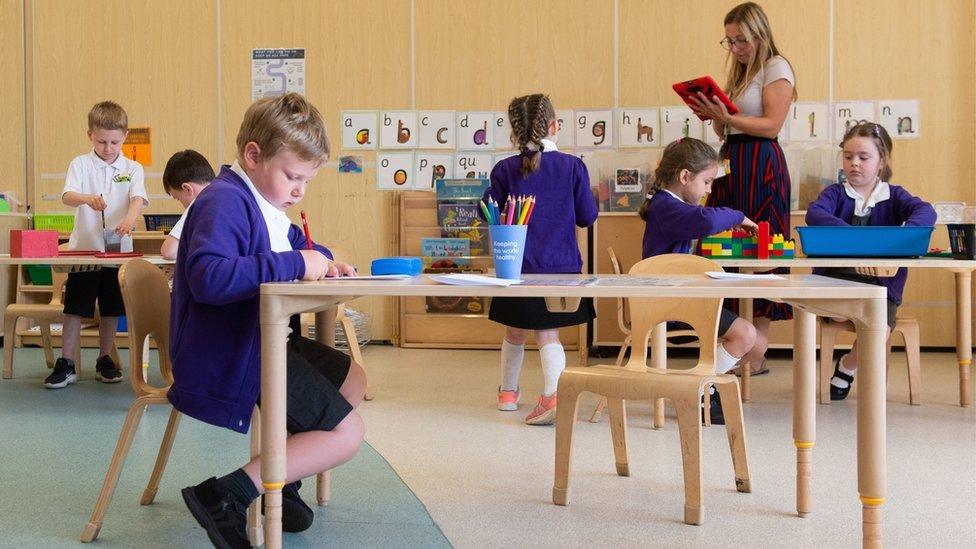Coronavirus: Pupils in Wales back in school full-time in September
- Published
- comments
Coronavirus: All you need to know about Wales' schools returning full-time in September
All state schools in Wales will reopen to all pupils in September for the first time since the coronavirus lockdown started in late March.
Education Minister Kirsty Williams said there would be only limited social distancing within "contact groups" of about 30 pupils.
She said schools are "safe and secure" - saying children do not seem to transmit the virus.
But parents will not be fined if they do not send their children back.
It remains unclear how further education colleges will operate in September, according to Colleges Wales.
The news comes as 900 extra teaching posts are to be created in Wales to help pupils catch up when they return.
Detailed guidance on how children will return to school will be published next week when most of Wales' school pupils will be in their final week of a shortened summer term.
The Welsh Conservatives and Plaid Cymru said the announcement could have been made sooner.
Schools union NASUWT said it was concerned that recommendations from scientists advising the Welsh Government were not included in Ms Williams' announcement.
Children 'don't seem to transmit the disease'
Ms Williams said it would be "disingenuous to say fully opening schools is a zero-risk proposition" but she said the "balance of risks" allowed a return to full-time schooling in September.
"Children, especially younger children, don't seem to transmit the disease to one another, or to on to adults," she said.
"So they can have confidence that they're sending their children in to environments that will be safe and secure.
"We have now a significant period of experience of how we can operate our schools in a safe and secure way, remembering that throughout this pandemic over 500 schools have been open to support critical worker and vulnerable children, and we have managed that safely."
She said community transmission rates were always under review and should the need arise for a school year or school to close then plans would be in place for pupils still to receive an education away from the classroom.
She said it was important that schools planned ahead so that "disruption to education can be minimised".
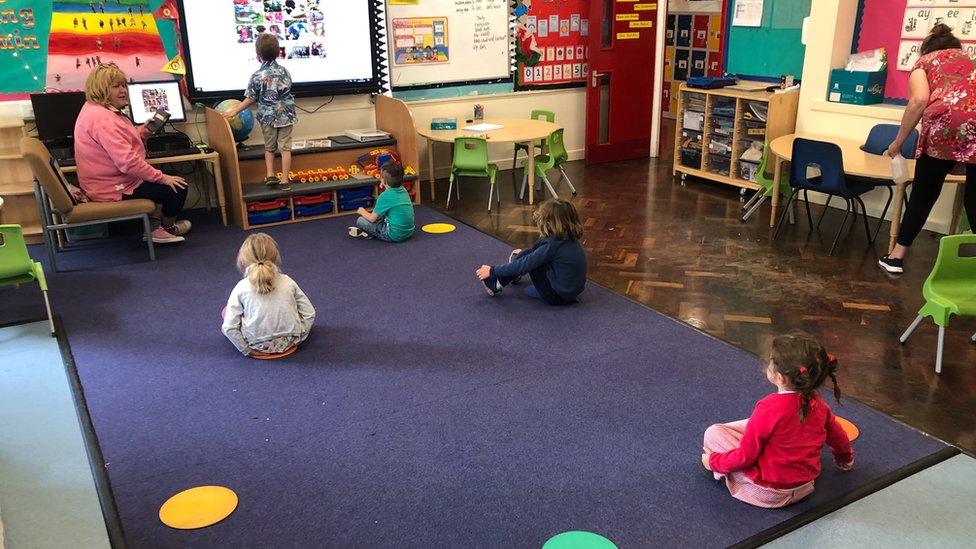
Schools in Wales reopened in a limited capacity on 29 June
Ms Williams said all pupils should return "if possible" from 1 September - the first day of the new term - but schools can have "two weeks flexibility" if headteachers want to prioritise the return of some year groups.
Schools 'will return to full capacity'
The minister wants all pupils "accommodated" by 14 September.
"Schools will return to full capacity with only limited social distancing within contact groups," said Ms Williams.
"At full operations, a contact group should consist of around 30 children. Some direct or indirect mixing between children in different contact groups will also be unavoidable.
"Schools will be required to minimise the risk of transmission by taking other mitigating measures. Social distancing for adults should remain in line with the regulations and guidance."
But Ms Williams said "lingering concerns" among parents and carers meant there would be no fines for not sending children to school.
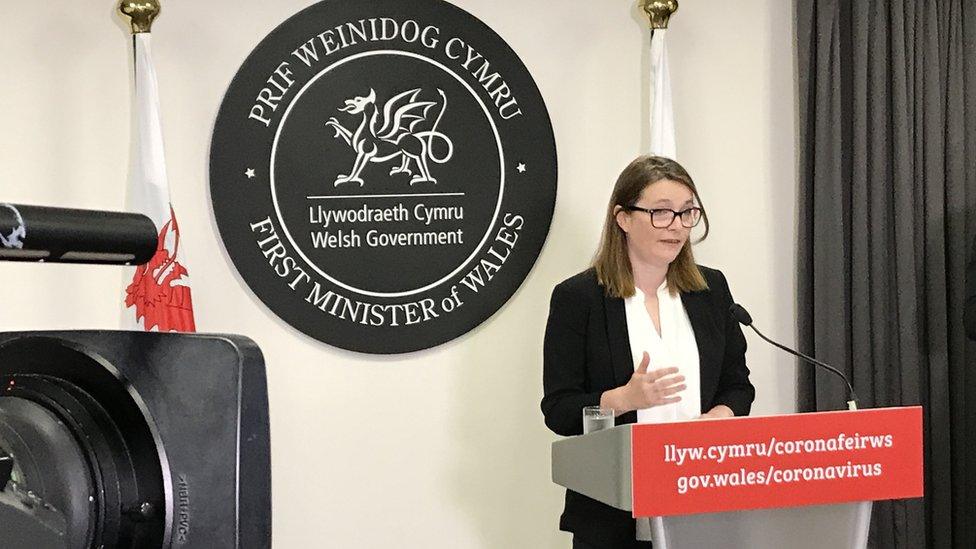
Education minister Kirsty Williams wants all pupils back in state schools by 14 September at the latest
"We want all children to be back in September, but I recognise that there may still be lingering concerns," she told the Welsh Government daily briefing.
"So initially we will not to be imposing fines on parents who choose not to send their children back.
"But we will be expecting schools to reach out to those parents, to do that now… to discuss with parents now any concerns that they may have."
Ms Williams said the Welsh Government's no-fining policy for parents would be "kept under review".
"At some stage we may indeed return to the situation as it was pre-covid, where fines will be issued to parents," she added.
Ms Williams said she would be working with nurseries and childcare groups over the summer "to support the gradual move towards full operations".
"On childcare, we will be working with the childcare sector over the summer to increase the size of the contact groups and to support the gradual move towards full operations," she added.
What has the reaction been?
Plaid Cymru education spokeswoman Sian Gwenllian said: "While it is not clear why the announcement has taken so long when Scotland and Northern Ireland published their guidance back in early May and June, this will be good news for pupils' education as the interaction between pupil and their teacher is of paramount importance to their learning and wellbeing."
Conservative education spokeswoman Suzy Davies said: "As we always suspected, we could have had this announcement a week ago.
"Local authorities and teachers were craving this certainty. At least the minister has finally listened to us and thousands of families and teachers as well as the children's commissioner."
Children's commissioner Sally Holland said she was "pleased that the government has responded so positively to calls to maximise children and young people's physical attendance at schools, colleges and other education settings this September, especially our call of providing a national minimum expectation".
Paul Whiteman, general secretary of head teachers' union NAHT, described it as "a significant moment".
But Dr Patrick Roach, general secretary of teachers union NASUWT, said: "We note with concern the Technical Advisory Group's advice in respect of transmissibility of the virus in children and that their specific recommendations for secondary age children are not reflected in the minister's statement today."
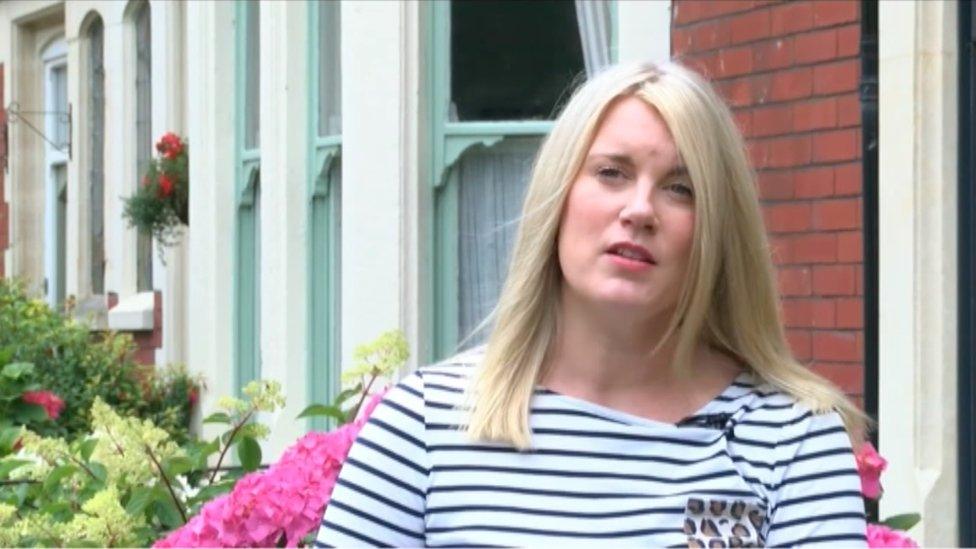
Nicola Jenkins is glad children will be back in school full-time
Parents gave the news a mixed reaction.
Dad Ross Sunders dubbed the announcement "reckless" and "another rash decision."
"We don't know what the conditions are going to be like in September," he said.
But mum Nicola Jenkins welcomed the decision.
"I'm glad that it's based on scientific data rather than pressure from parents," she said.
What is the scientific advice?
The group giving scientific advice to the Welsh Government said there remained some "ongoing uncertainty in transmissibility" of coronavirus by children.
But it said that "real world observation of school opening in England and other countries has shown little transmission by children".
Transmissibility in children under the age of 12 seems to be particularly low, the Technical Advisory Group said, "and this leads us to feel able to recommend that these children can be covid secure using more flexible controls than the 2m distance, such as seating facing in the same direction."
But secondary age children are "likely to need to reduce overall daily contacts by 40-60% to maintain Covid-19 security", it said, suggesting 2m social distancing or maintaining "covid secure groups".
It made a range of recommendations, including to make preparations to teach up to 100% of children remotely if needed and for a contact tracing programme to track 80% of contacts.


There has been growing pressure on the Welsh Government to spell out plans for September with most schools closing for the summer in just over a week.
Getting everything in place to welcome all pupils back next term will be a challenge and detailed guidance from the government won't be published until next week.
A full return seemed inevitable after all other parts of the UK said that was their aim.
But there are plenty of practicalities to sort out, including school transport.
And any spike in the virus over the summer holiday could derail the plans in some areas.

The UK Education Secretary Gavin Williamson announced in June that all pupils in all year groups in England would go back to school full-time in September.
There had been growing pressure on the Welsh Government to set out its plan for how schools might reopen in September as a petition with more than 9,000 signatures has been created calling for pupils to return full time after the summer.
Announcing the September return, Ms Williams said maintaining "contact groups" may be difficult in certain circumstances, like on school transport, but controls would be in place.
The announcement comes two weeks after schools in Wales reopened on 29 June - and on the day of the Welsh Government's pledge to create an extra 900 teaching posts.
- Published9 July 2020
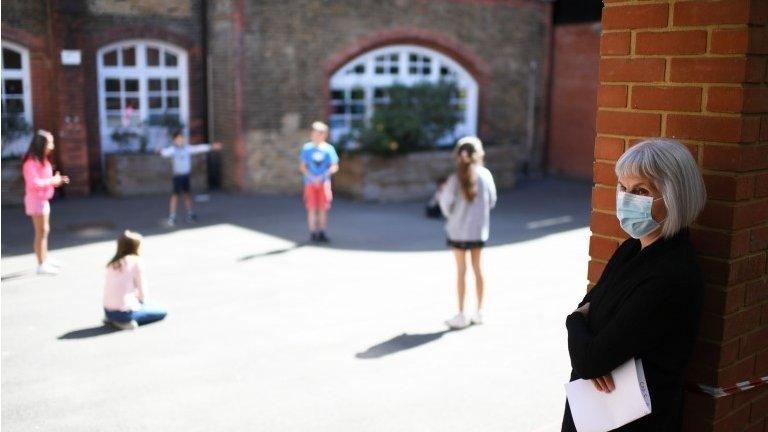
- Published19 June 2020
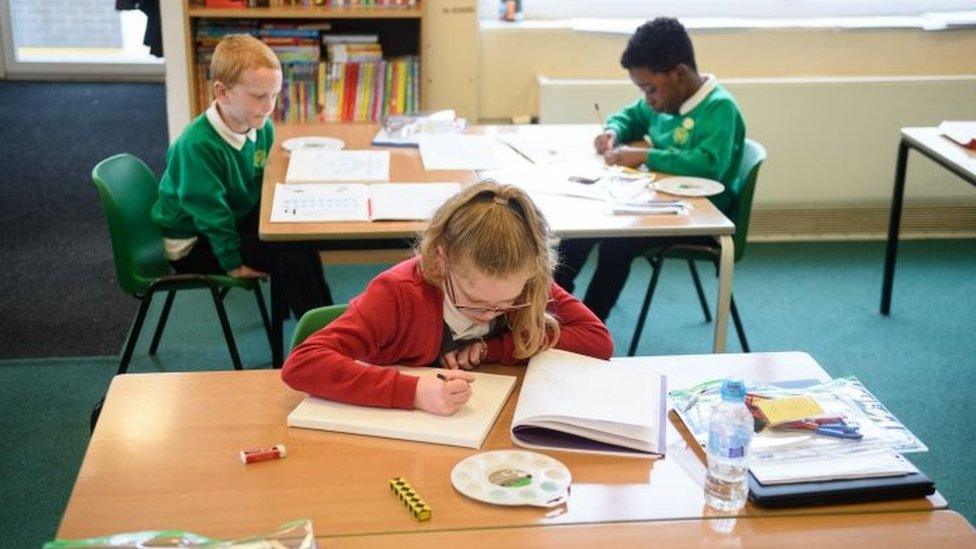
- Published29 June 2020
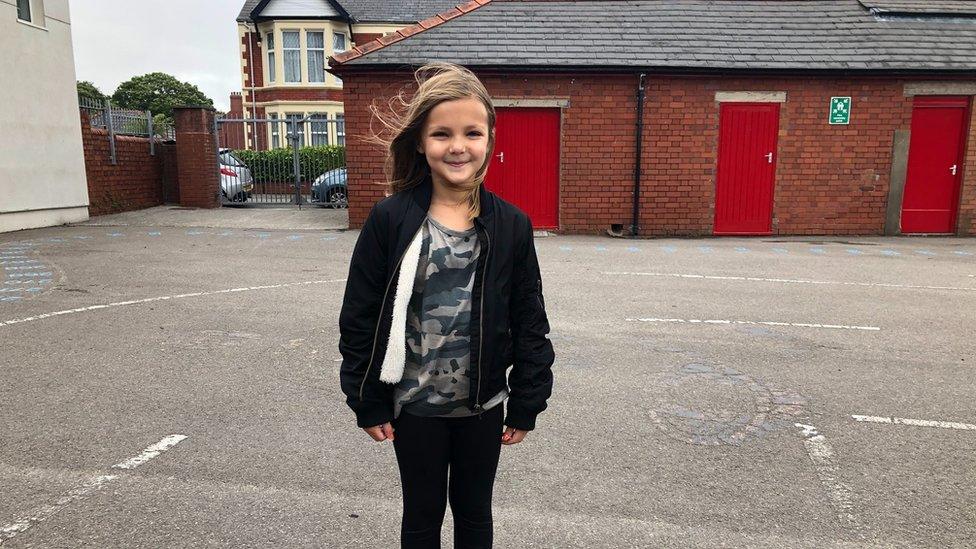
- Published24 June 2020
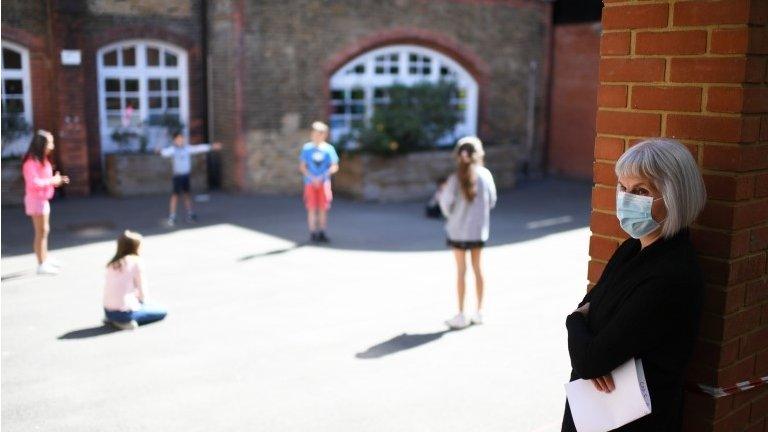
- Published19 June 2020
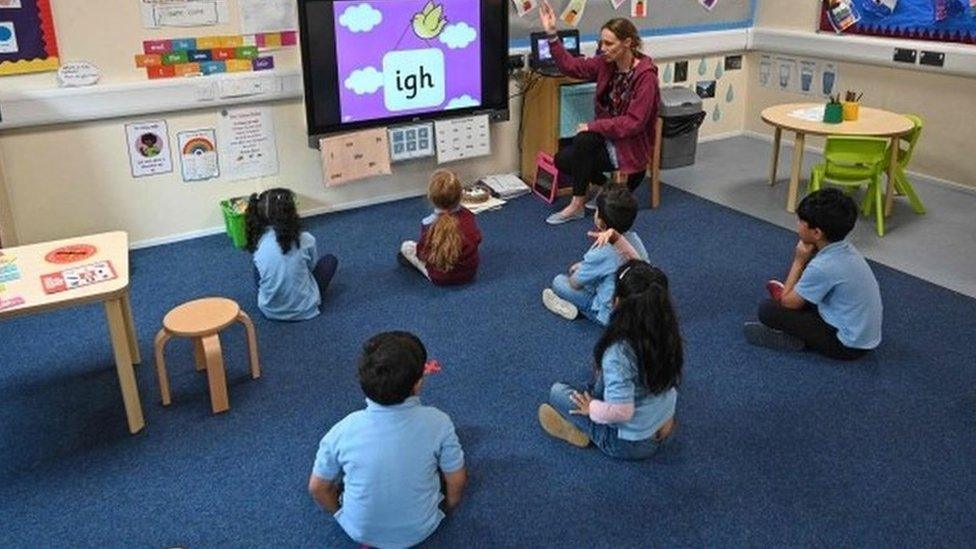
- Published3 June 2020
